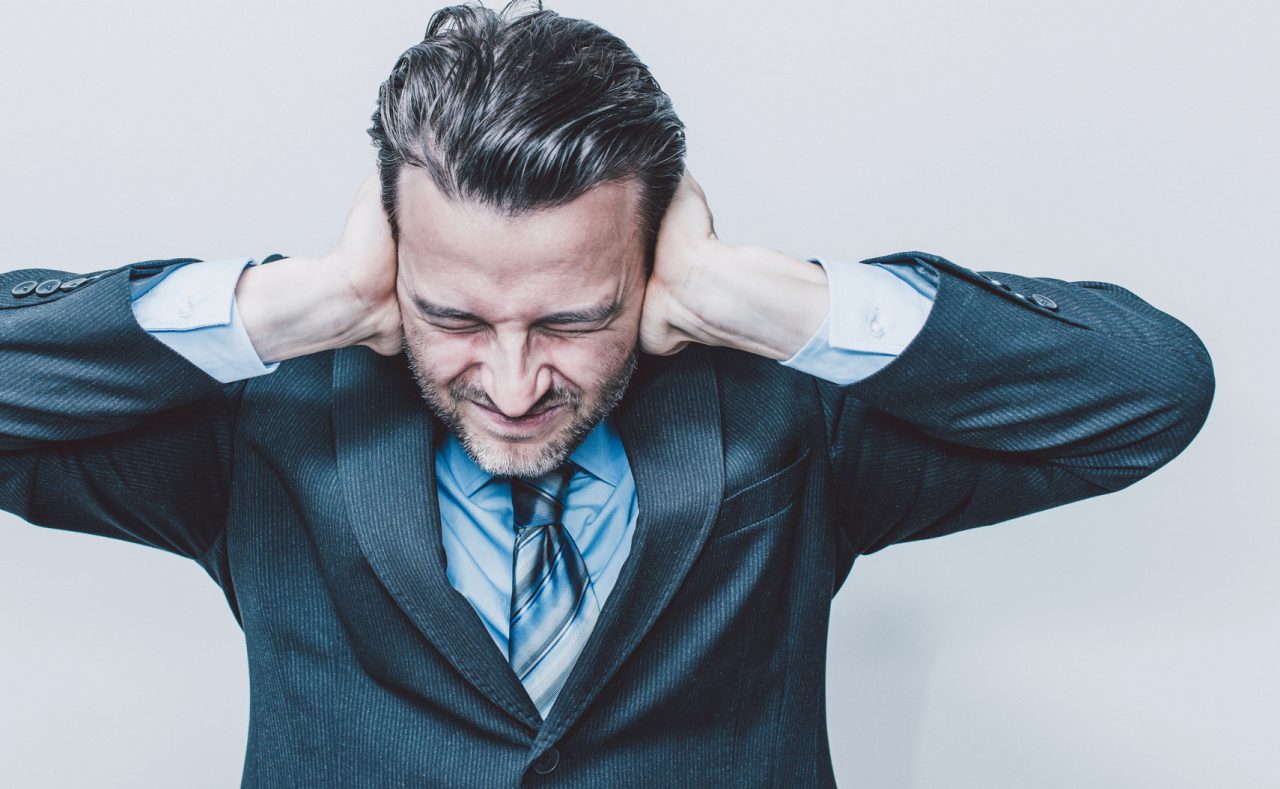How Noise Pollution Hurts You

Loud background noise, or noise pollution, doesn’t just hurt your hearing. Constant loud noise puts your heart and sleep at risk, too. Here’s what you should know.
Loud noises you can’t avoid are a form of pollution, making your environment dangerous for your health. As bars have gotten noisier, for example, with beat-heavy music at 90 decibels (dB), the people who work in them are threatened with hearing loss. One study of more than 2,000 Manhattan restaurants concluded that, during peak days and hours, 60 percent of the bars were dangerously loud.
YOU MIGHT ALSO LIKE: What Is Tinnitus?
What’s too loud?
Normal conversation is about 60 dB, a lawn mower is about 90 dB, and a loud rock concert could hit 120 dB. As a general rule, you shouldn’t need to raise your voice to talk to someone an arm’s length away.
There are many sources of background noise. The noise of a drill doing road repair outside your office window might hurt your earys. Maybe you sit near an elevator shaft and hear it thud when it lands. In an apartment building, your neighbors might get into noisy, drunken battles.
Some researchers argue that the accumulated effects of noise over time largely cause to age-related hearing decline. More than 8.5 percent of adults aged 55 to 64 have disabling hearing loss, and the number jumps to nearly 25 percent in the next decade and 50 percent past age 75. Damage from noise generally causes tinnitus — phantom sounds you hear but no one else can.
Loud noise affects your entire body if it triggers a stress response. Road traffic and aircraft noise, for example, increase your risk of heart disease by six percent for every 10 decibels, according to one study. When your body perceives a threat, it pumps out cortisol and other hormones and promotes inflammation, as if you were fighting an infection, which is a burden on your heart.
Several risks rise if noises affect the quality of your sleep. Scary, night-time noise can affect you even if you think you’re sleeping through it. At night, your blood pressure should fall and give your heart a rest. But noise can wake your nervous system, even if you’re not conscious of it.
Sleep disruption may contribute to breast cancer, according to research on women living near an airport. (Night shift work and sleep deprivation are linked to the disease.)
Similarly, night-time noise may raise your risk of diabetes because poor sleep disrupts your endocrine system. One overview concluded that exposure to noise louder than 60 decibels at home was linked to roughly a 21 percent higher risk of type 2 diabetes.
Noise may also affect mental functioning. One project examined the effects of noise on nearly 3,000 nine- and 10-year-olds going to school near three large international airports. The more aircraft noise the children heard, the less well they did on reading and memory tests. Other research suggests that noise distracts children who have a greater risk of problems in school.
In older adults, dementia is linked to strokes, and noise pollution may contribute to those problems if it weakens your cardiovascular system.
What you can do
The first step is to recognize that noise is harmful and avoid it. Spend less time in a noisy environment, or step away for breaks. Noise-cancelling headphones or earbuds can block out background noise. They’re well worth the extra cost if you frequently listen to music in noisy areas. Wear earplugs at a loud concert.
At home, install double-paned windows, add rugs and carpets, and keep windows closed. Wear earplugs at night — and consider sleeping in separate rooms if your partner snores. (Your partner may also need a CPAP machine.) A white-noise machine can help you sleep.
Don’t blast the TV. If a family member has hearing loss, make the case for hearing aids or other special equipment so he or she can hear without endangering everyone else.
Hearing loss can creep up on you, so get your hearing checked if other people tell you that you’re raising the volume on equipment too loud or you get used to a noisy environment.
Updated:
June 30, 2023
Reviewed By:
Janet O’Dell, RN